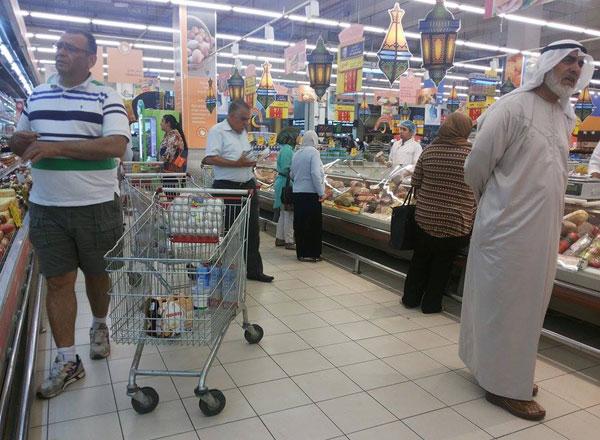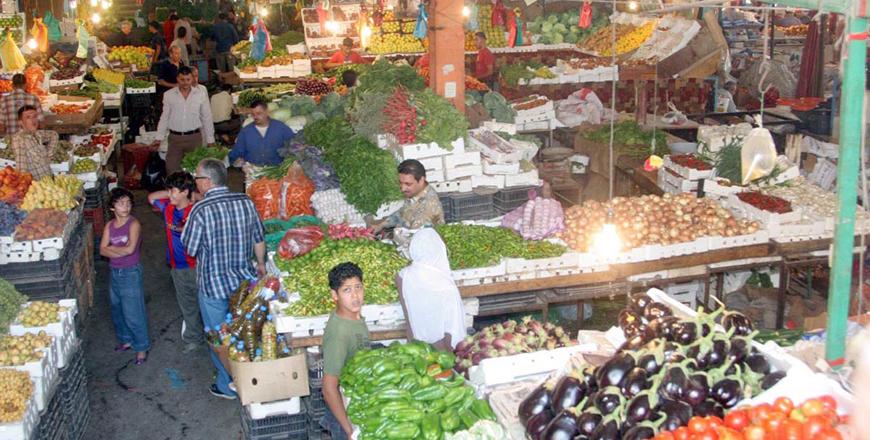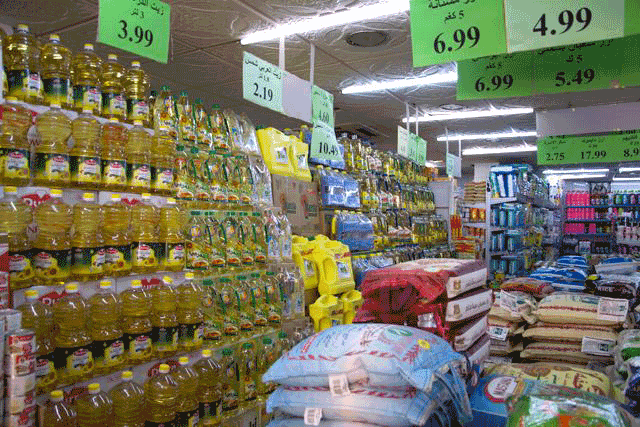You are here
Ensour says prices should remain stable in Ramadan
By JT - May 14,2016 - Last updated at May 14,2016

Shoppers examine products at a hypermarket in Amman last Ramadan. During the fasting month, consumption of food and beverages rises in Jordan due to a change in eating patterns (Photo by Amjad Ghsoun)
AMMAN — The Industry, Trade and Supply Ministry on Saturday held a meeting to discuss measures taken by the concerned government agencies and the private sector to provide goods for Ramadan, the Jordan News Agency, Petra, reported.
During the meeting, chaired by Prime Minister Abdullah Ensour, the ministry announced that by the end of April, the prices of 45 commodities dropped while the prices of 11 saw an increase compared to the same period in 2015.
Ensour said prices of commodities have dropped internationally as a result of the decrease in oil prices, noting that it is thus traders are expected to lower prices.
The premier said the meeting aims at ensuring the availability of commodities during the fasting month of Ramadan, expected to start in early June, calling for ensuring that goods flow through the Aqaba Port unhindered.
He urged all the concerned authorities, especially municipalities, to deal with the random spread of street stalls, many of which sell products such as juice, fruit and vegetables in Ramadan.
Ensour called on the media to report on the availability of goods during Ramadan, the ninth month in the Islamic lunar calendar when Muslims abstain from eating and drinking from dawn to sunset.
Consumption of food and beverages usually rises in Jordan during Ramadan due to the change in eating patterns.
Industry, Trade and Supply Minister Maha Ali said preparations for Ramadan started a while ago, noting that several meetings with government parties were held to ensure the Kingdom has enough commodities for the fasting month.
In remarks to The Jordan Times last week, Agriculture Ministry Spokesperson Nimer Haddadin expected prices of agricultural produce to remain unchanged during Ramadan, highlighting that in addition to plans to increase supplies at the local market, the fasting month will coincide with the peak of the production season for fruit and vegetables in Mafraq, some 80km northeast of Amman.
A total of 25,000 dunums of land in Mafraq Governorate is planted with tomatoes and are expected to provide the local market with 200,000 tonnes during summer, according to ministry figures.
Moreover, cucumbers are cultivated in 600 greenhouses in Mafraq, with each expected to provide 10 tonnes.
In addition, Haddadin said the available quantities of meat will exceed the needs of the local market, as there are currently 300,000 heads of Romanian sheep and 30,000 heads of local and Australian sheep, noting that the local market also has 23,000 tonnes of local poultry, in addition to imported chicken.
In addition to plans to ensure the central market has enough fruit and vegetable supplies during the fasting month, Amman Mayor Aqel Biltaji said the municipality also has a traffic plan in place to alleviate congestion during Ramadan.
Related Articles
AMMAN — The Ministry of Agriculture will increase supplies of fruit and vegetables to the central market during the fasting month of Ramadan
AMMAN — The Ministry of Agriculture on Monday advised consumers against excessive buying of food commodities ahead of the fasting month of R
AMMAN — The Ministry of Industry, Trade and Supply is keeping an eye on the prices of goods, and is assuring the public that inspection team














